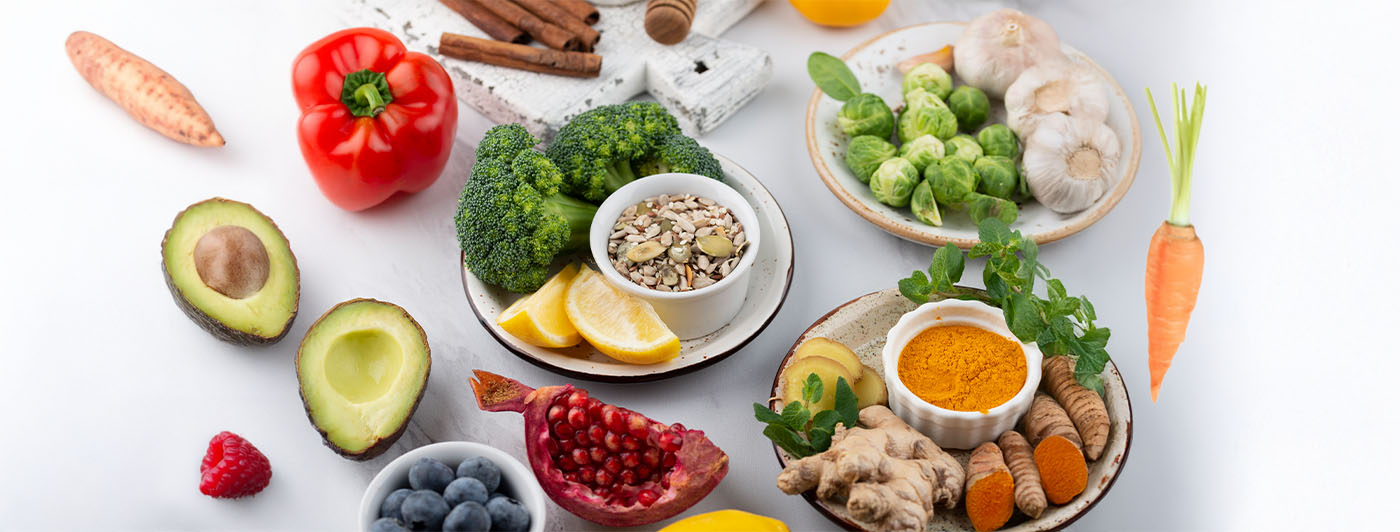They say beauty is skin-deep—but what if it actually starts in your gut?
That glowing, dewy complexion everyone’s chasing doesn’t just come from bottles and creams. The real secret to youthful skin lies in what you eat. Just as your skin reflects stress or poor sleep, it also mirrors your diet—and that's where hyaluronic acid rich foods come in.
If glowing, plump, and youthful skin is what you seek, start by looking at your plate. While skincare routines and serums get all the attention, the foundation for lasting radiance is often built from within. Eating foods that naturally boost your body’s hyaluronic acid levels can help retain moisture, reduce fine lines, and support collagen and elastin—two essential proteins for firm, healthy skin.
Even better? Many of these skin-loving ingredients double up as excellent sources of plant protein, offering the added benefit of tissue repair, improved skin tone, and long-term rejuvenation.
In this article, we explore 9 powerful vegetarian foods that not only stimulate your body’s hyaluronic acid production but also provide the nutritional backbone for smooth, hydrated, and glowing skin—all through natural, delicious ingredients.

1. Sweet Potatoes
Sweet potatoes are one of the most powerful hyaluronic acid rich foods thanks to their high magnesium content, which supports the body’s internal synthesis of hyaluronic acid. They're also rich in beta-carotene, which converts to vitamin A and promotes skin cell renewal.
Their antioxidants fight oxidative stress, which helps maintain smooth, elastic skin and prevent early signs of aging.
How to enjoy: Roast with olive oil, mash with herbs, or dice into curries and stews for a vibrant skin-friendly boost.
2. Spinach
Spinach offers a rich supply of magnesium, iron, folate, and vitamins A and C. These nutrients work together to enhance blood circulation, stimulate collagen synthesis, and increase hyaluronic acid activity within skin layers. Its detoxifying chlorophyll also helps reduce inflammation and promotes a clearer, more radiant complexion.
Even better, spinach pairs beautifully with other ingredients like lentils, chickpeas, or quinoa—some of the best plant based protein sources—to create nutrient-dense meals that support both skin health and muscle recovery.
How to enjoy: Blend into smoothies with chia seeds for skin, sauté with garlic, or stir into lentil soups and dal for a skin-loving, protein-rich boost.
3. Citrus Fruits
Citrus fruits such as oranges, lemons, and grapefruits are rich in vitamin C, which is essential for the natural production and maintenance of hyaluronic acid and collagen. These fruits also help brighten the skin and protect against UV damage.
They act as natural enhancers, improving nutrient absorption and encouraging moisture retention within skin cells.
How to enjoy: Start your day with warm lemon water, add orange slices to salads, or zest citrus into dressings and marinades.
4. Carrots
Carrots are packed with beta-carotene and magnesium, both of which contribute to the body’s ability to produce and retain hyaluronic acid. They also improve circulation and reduce oxidative damage, resulting in smoother skin texture and tone.
Carrots are a must-have for people looking to delay signs of aging while naturally supporting skin elasticity. When paired with protein foods like hummus, lentils, or nuts, they create a balanced snack or meal that supports both skin health and overall nourishment.
How to enjoy: Enjoy raw in salads, blend into smoothies, or roast with cumin and olive oil for a warm, comforting dish.
5. Pumpkin Seeds
Pumpkin seeds are loaded with zinc, magnesium, and antioxidants—all vital for hyaluronic acid rich foods to do their work efficiently. Zinc supports collagen structure, while magnesium directly supports hyaluronic acid production.
Pumpkin seeds benefits also include hormone balance, reduced inflammation, and improved skin hydration.
How to enjoy: Add to trail mixes, sprinkle over oats or salads, or grind into smoothies or dips.
6. Ground Nut
Peanuts—or ground nut, as they’re commonly known—contain niacin (vitamin B3) and resveratrol, both of which are skin-friendly nutrients. Niacin boosts skin elasticity and smoothness, while resveratrol acts as a protective antioxidant.
Though often overlooked in skincare nutrition, ground nuts help retain skin hydration by supporting cell membrane strength and enhancing the effects of hyaluronic acid rich foods.
How to enjoy: Snack on roasted peanuts, make homemade peanut butter, or crush and add to stir-fried vegetables.
7. Moong Dal
Among legumes, which dal has highest protein? Moong dal ranks at the top. It’s not only high in plant-based protein but also rich in magnesium, folate, and iron—all essential for healthy, hydrated skin.
Moong dal supports collagen production and hyaluronic acid synthesis while promoting skin cell regeneration. It also provides slow-release energy and helps regulate blood sugar levels, which keeps skin inflammation in check.
How to enjoy: Use in soups, khichdi, or sprouted moong salads for a light yet nutrient-dense option.
8. Berries
Berries like strawberries, blueberries, and blackberries are antioxidant-rich and loaded with vitamin C, which helps preserve the body’s stores of hyaluronic acid. They also combat skin-damaging free radicals, support collagen integrity, and boost the skin's natural repair processes.
These vibrant fruits are a perfect complement to any hyaluronic acid rich foods diet, especially when combined with protein for skin repair.
How to enjoy: Mix into oats or smoothies with plant based protein powder, add to yogurt bowls, or enjoy fresh as a snack.
9. Quinoa
Quinoa is a complete plant protein source, meaning it contains all nine essential amino acids. It’s also high in magnesium, zinc, and fiber, supporting healthy digestion, hormone regulation, and hyaluronic acid synthesis.
Quinoa helps the skin retain moisture while reducing inflammation and promoting a firmer, more even complexion.
How to enjoy: Cook into savory bowls, serve chilled in salads, or stir into warm breakfast porridge for a skin-loving start to your day.
The Role of Plant Proteins in Skin Vitality
Skin thrives on amino acids—the building blocks of protein. Whether you’re aiming to rebuild collagen, repair skin damage, or improve elasticity, adequate protein intake is key. Thankfully, a plant-based diet offers plenty of options.
Incorporating a variety of legumes, nuts, seeds, and grains ensures a steady intake of essential amino acids, minerals, and antioxidants. When combined with hyaluronic acid rich foods, these protein sources form a complete, holistic skincare approach.
If you're short on time or need a convenient supplement, plant based protein powder can help fill in nutritional gaps. It’s especially useful when paired with skin-supportive fruits like berries and protein rich fruits such as guava or jackfruit.
Together, these foods nourish the skin’s internal framework, support hydration, and promote a youthful glow—naturally.
Conclusion
Feeding your skin from within is not just a trend—it’s a sustainable, long-term strategy for achieving true radiance. By incorporating these 9 hyaluronic acid rich foods into your daily meals—alongside magnesium, vitamin C, healthy fats, and plant protein—you empower your body to hydrate, heal, and glow naturally.
So the next time you think skincare, don’t just stop at serums. Start with your kitchen. Add a protein-packed bowl of dal to your lunch, toss pumpkin seeds into your salad, or blend a citrus-berry smoothie into your morning routine.
Your glow is just one plate away. Choose foods that love your skin back—every bite is a step toward smoother, firmer, and more youthful skin. Start today.
Frequently Asked Questions
1. What foods are high in hyaluronic acid?
Foods naturally high in hyaluronic acid or that support its production include sweet potatoes, spinach, citrus fruits, moong dal, quinoa, and pumpkin seeds. These hyaluronic acid rich foods are loaded with magnesium, vitamin C, and antioxidants, which help your body boost collagen, retain moisture, and support youthful skin. Including these in your daily diet can enhance skin hydration and elasticity.
2. Which nuts are high in hyaluronic acid?
While nuts don't contain hyaluronic acid directly, certain varieties help stimulate its production. Ground nuts (peanuts) and pumpkin seeds are particularly beneficial due to their high levels of magnesium, zinc, and niacin. These nutrients play a key role in collagen formation and skin hydration, making them excellent choices among hyaluronic acid rich foods.
3. What herbs are high in hyaluronic acid?
Herbs like cilantro (coriander leaves), parsley, and basil are not direct sources of hyaluronic acid but are rich in antioxidants and vitamin C, which support the body’s natural production. Additionally, gotu kola (Centella asiatica) is known in Ayurvedic and Asian medicine to support collagen synthesis and skin elasticity, making it a popular herb for natural skin rejuvenation.
4. What are the disadvantages of hyaluronic acid?
-
Hyaluronic acid is generally safe, but some disadvantages may include:
-
Temporary redness or irritation when used topically, especially on sensitive skin.
-
Allergic reactions, though rare, can occur.
-
Injections may cause swelling or bruising, and results are not permanent.
When consumed via hyaluronic acid rich foods, side effects are extremely rare. Always patch test topical products and consult a dermatologist for injectables.
5. Who should not use hyaluronic acid?
People with severe skin allergies, autoimmune conditions, or a history of reactivity to dermal fillers should avoid injectable hyaluronic acid treatments. Additionally, those using certain acne medications or undergoing chemical peels or laser treatments should consult a doctor before using topical hyaluronic acid, as it may cause sensitivity. However, consuming hyaluronic acid rich foods is safe for most individuals.












